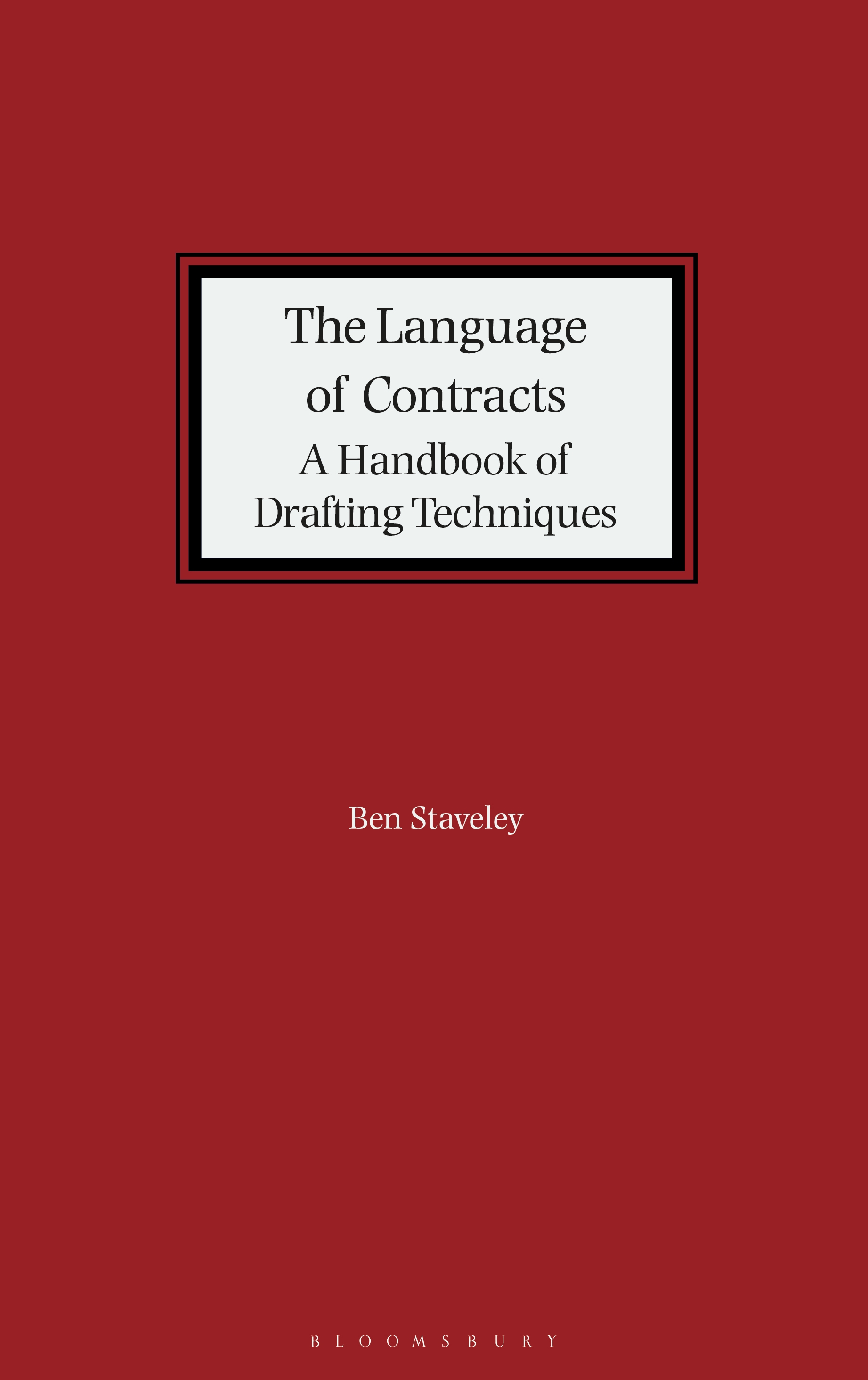Q & A with Ben Staveley
Ben Staveley is the author of The Language of Contracts: A Handbook of Drafting Techniques.
This is included in our Company and Commercial Law service.
What led you to your role as a consultant and trainer in contract drafting skills for lawyers, law students and other businesses?
In my practising career as a City lawyer I became intrigued by how the contract drafting that I saw was wildly variable in quality. Some drafting was excellent: coherent, straightforward and readily understandable, even at first reading. But some drafting, even originating from firms with a good reputation, was dreadful: muddled, legalistic and uncertain in meaning. How did the legal profession get away with such a variation of standards? If lawyers were builders, too many of our houses would be falling down. Or they were standing up only because nobody had given them any sort of a shove (by no means does every poorly-drafted contract ends up in a dispute: nobody may have had cause to read it critically after it was signed).
So after I gave up practice, trying to help professionals to think more critically about drafting – why some things work and others don’t ̶ seemed a natural move for me.
What would you say is the biggest challenge law firms face when they come to draft contracts?
Clients expect a law firm to be able to harness its experience to be able to produce a first draft at the drop of a hat. And, when negotiations are under way, to be able to update successive drafts at the same pace. Why, clients ask, can’t the lawyers’ drafting keep up with their own negotiations? After all, everyone (even without AI) knows how to cut and paste a document. ‘The lawyers are holding up the deal.’
Experienced lawyers know that, however hard they work, they need time to reflect on some vital questions that their clients are either oblivious to or impatient about. Does the contract work coherently at every level? Is it clear enough to be fully understood, without any ambiguity? Does it cover all that it needs to? Are there any legal issues that need thinking through to make sure they don’t stymie what the clients want to do? The law firm’s task is to organise all its resources to make sure that all this is done as quickly and efficiently as possible. And to persuade impatient clients that time the lawyers spend pre-signing thinking through these issues, ideally when not dog-tired, is well spent ̶ it may avoid a world of pain afterwards.
What impact do you think AI will have on the way contracts are drafted?
In theory at least, AI should eventually be able to shoulder much of the burden that currently falls on the human drafter. At present, most programmes for producing a quasi-bespoke first draft rely on a lawyer providing the inputs into a system. If the parties then negotiate, lawyers also do most of any necessary updating work.
But AI should in theory be able to streamline much of that. Why, for example, should a lawyer not be able just to talk to a computer to describe what’s needed in the first draft? (‘Alexa, I want a warranty cap of £3 million.’) Why can’t a sophisticated enough AI tool just listen in to a negotiation meeting and update an existing draft as points get agreed?
Clients will like it if a contract can be produced and processed with fewer expensive chargeable hours from human lawyers. But the jury is still out on how easy AI will find it to generate contracts that work all the time in all cases. And for the foreseeable future, clients seem likely to want to rely on a flesh-and-blood professional lawyer to tell them that a contract works, however much of the drafting has been AI-generated.
But who will be in a position to give the clients the comfort they want? The pool of expertise will shrink if contract-drafting lawyers have only ever given input into AI rather than learning themselves how to analyse contractual language and predict its effect. Will the law firm model necessarily have to trend towards reducing the gearing that has traditionally driven profit? Law firm managements are already grappling with this type of issue: nobody quite knows what the destination is, but nobody wants to be left behind.
What advice would you give to someone new to contract drafting?
Be sceptical. It is tempting to think that language that appears in an earlier contract or a standard form is bound to work OK, just because it’s been used before. But that isn’t right: time after time the courts are asked to look at contractual language that was taken from a precedent of some kind, but which turns out, when you really look at it closely, not to be clear at all. That includes contractual language drafted by the most eminent law firms, or sanctioned by the most reputable professional bodies.
Modern life does not encourage anyone to concentrate hard on a single piece of writing for a protracted period. But success in contract drafting is a reward that is reserved for those who are unfashionably meticulous. And, as the profession adapts to AI, it may well be that the skill to be able to analyse contract drafting becomes increasingly valuable ̶ see above. So those who are new to contract drafting should embrace any opportunity they are given to develop that skill. I hope my book will be of use to them, as well as to more experienced lawyers.

